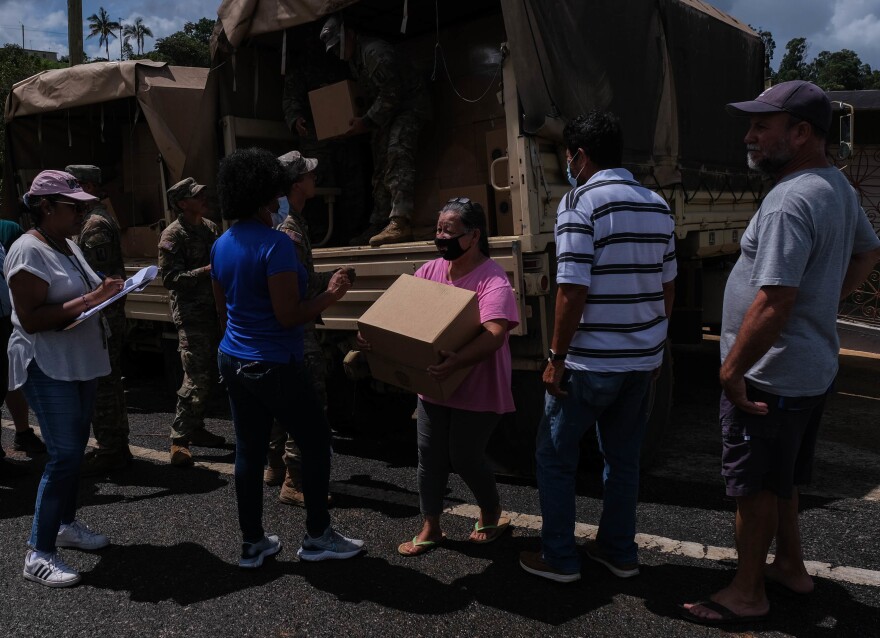OROCOVIS, Puerto Rico — Hundreds of thousands of people across Puerto Rico are still waiting for water and power to be restored following Hurricane Fiona. Fiona was just a category 1 hurricane when it hit. But it moved slowly and dropped more than 30 inches of rain on some areas, and the flooding washed out roads, isolating some mountain communities.
In the town of Orocovis, a mudslide blocked a major roadway, making it difficult for residents to get food, water and other necessities. A local construction company quickly got to work, removing tons of soil, vegetation and boulders that were blocking the road. By Thursday, a single lane had been cleared allowing some trucks containing food, water and fuel to reach the city.

Other roads in the area collapsed when the ground under them washed away. In Cacao, a small community of scattered homes in the mountains, hundreds of people were stranded when the road connecting them with Orocovis collapsed. Local authorities surveyed the damage, declared it unsafe and closed the road. But residents soon convinced them to open a temporary road so they could at least get into Orocovis.

Herbert Acosta, a civil engineer was part of crew working Thursday to stabilize the road. "Right now, we are putting barriers on both sides to make it safe," he said. But he has concerns that more rain could bring additional flooding and lead to a total road collapse. "We are going to monitor it every day," he said, "to see how it is."
Making the isolation worse, Orocovis is one of many communities in Puerto Rico still waiting for power and water to be restored. At the community's small sports stadium, people have been lining up to fill jugs, barrels and cisterns with clean water pumped from tank trucks. Residents says it's a familiar routine. After Hurricane Maria in 2017, some were without water service for six months.

Puerto Rico's National Guard has been to isolated communities, distributing food and other supplies to residents having trouble getting into town. Corporal Alexis Cruz said, "We're just trying to spread a little bit of happiness among all this mess."
Puerto Rico's water authority says service has been restored to more than two-thirds of its customers. The island's power company says about 40% of its customers now have electricity. But in Orocovis, residents are skeptical about reassurances from the governor and other leaders that power and water service will be restored soon. As he waited for water at the sports stadium, Marcelino Cassiano repeated an oft-heard refrain, "I'll believe it when I see it."
Copyright 2023 NPR. To see more, visit https://www.npr.org.






